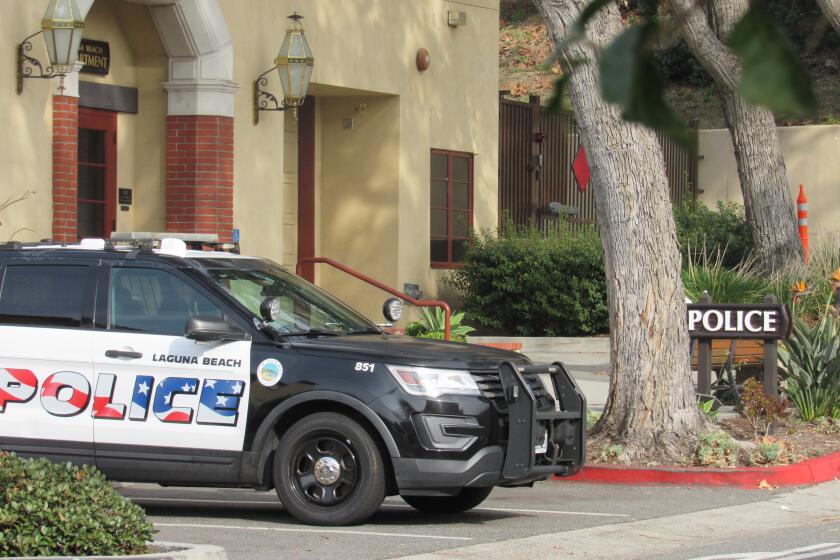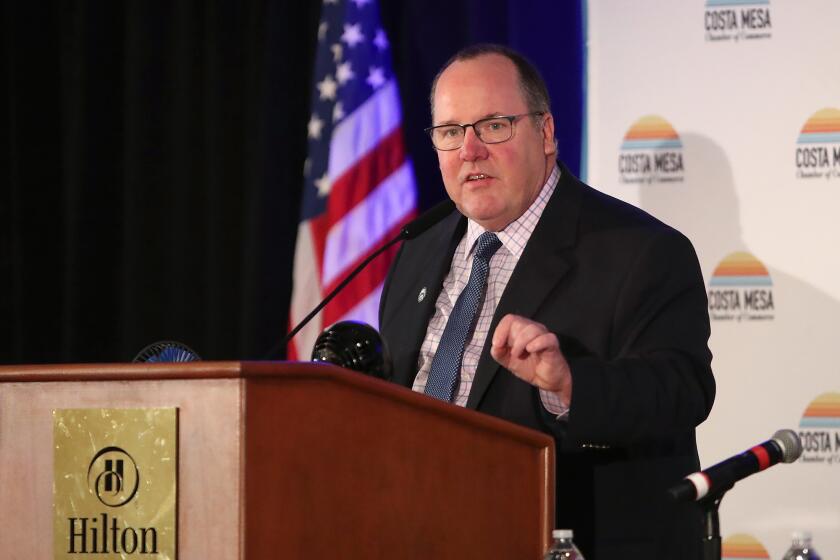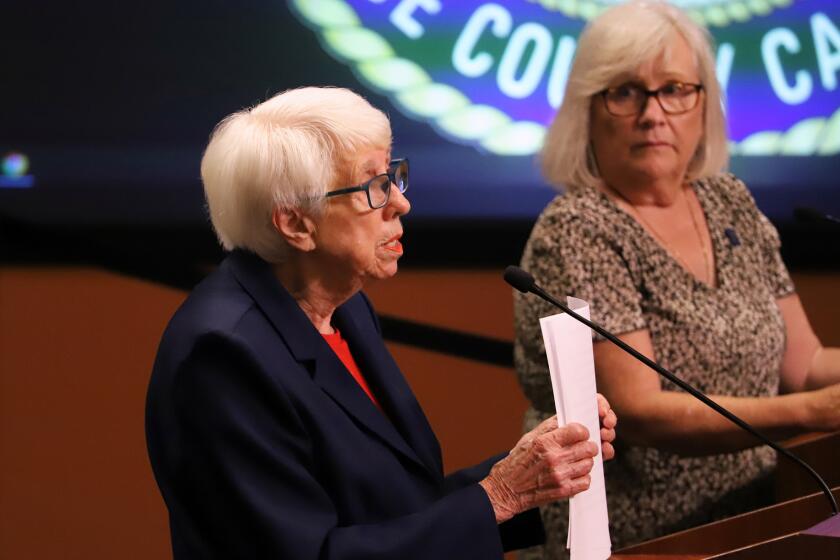St. James members want their church reopened, not punishment for bishop, attorney tells hearing panel
The displaced members of St. James the Great Episcopal Church want a guilty verdict for their bishop in his misconduct hearing — but they don’t want punishment.
What they really want is their church, which was closed in anticipation of a 2015 sale that ultimately never happened, to be reopened.
The Newport Beach congregation, nearing two years without access to their sanctuary at 3209 Via Lido, took Bishop J. Jon Bruno of the Episcopal Diocese of Los Angeles to ecclesiastical court in March on allegations relating to his attempt to sell the church campus for $15 million to townhouse developers.
In written closing arguments filed last week, church attorney Jerry Coughlan asked that the panel deliberating Bruno’s fate order the church reopened and reinstate its vicar, the Rev. Canon Cindy Voorhees, “without retribution” and that the bishop step aside from governing the congregation.
Coughlan recommended that Bruno be suspended from ministry for at least a year, arguing that a lower-level parish priest acting the same way he alleges Bruno did would receive a lengthy suspension.
“But a stiff sentence by itself would not help the congregation, the diocese, or the church and likely would exacerbate the situation. It would invite an appeal, further delay and controversy,” Coughlan wrote. “It is in the best interest of everyone to bring about prompt reconciliation. Therefore, the church attorney recommends that the penalty be stayed if [Bruno] agrees to forgo any appeal.”
Should Bruno accept that, Coughlan suggested the following terms: that the judges bar Bruno from any administration of St. James the Great; promptly reopen the church for worship under the direction of an independent member of the diocese; and reinstate Voorhees through 2018, with back credit toward her pension.
In May 2015, Bruno told the congregation that he had committed to selling the site to Legacy Partners, which wanted to raze the campus and build luxury townhomes. That June, Bruno changed the locks on the church.
But Legacy’s investment partner in the deal decided not to proceed, and Legacy also dropped out.
The congregation filed an ecclesiastical complaint not long after its eviction. Members alleged that Bruno was deceptive and unbecoming of a clergyman when he tried to sell the church site and that he didn’t have permission of the diocesan government to do so.
At the March hearing, the congregation claimed that Bruno wanted the money for a real estate purchase the diocese hoped to complete in Anaheim but told the church he would dedicate funds to displaced worshippers and the needy. The diocese instead took out a loan for the Anaheim deal.
In their own brief, Bruno’s attorneys repeated his defenses: that the church was never actually sold, that he acted on the fiscal information he had at the time and that he never promised the church wasn’t subject to sale.
Bruno’s attorneys said the ecclesiastical complaint, plus a failed civil lawsuit, “political actions and social media campaign” strategically derailed the sale.
Ecclesiastical law “was not intended to be used as a weapon to challenge a diocesan bishop’s decisions regarding the administration and stewardship of his or her diocese,” wrote attorney Julie Dean Larsen. “[The law] requires that the church attorney meet certain standards to override the fundamental and moral concept that the accused is innocent until proven otherwise. He has failed on all accounts to meet the burden.”
The hearing panel is a five-person board of ordained and lay representatives of Episcopal churches from around the country. The verdict is pending.
Twitter: @Daily_PilotHD
All the latest on Orange County from Orange County.
Get our free TimesOC newsletter.
You may occasionally receive promotional content from the Daily Pilot.




